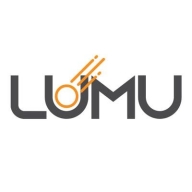

Netsurion and Lumu compete in the cybersecurity category. Lumu holds the upper hand with its advanced features, despite its higher pricing.
Features: Netsurion offers reliable network security solutions, broad threat detection, and satisfactory support. Lumu provides innovative threat intelligence, automated threat assessment, and advanced analytics, giving it real-time insights and adaptability.
Room for Improvement: Netsurion needs enhanced alert customization, better integration capabilities, and improved efficiency. Lumu could benefit from interface improvements, more third-party integrations, and greater flexibility.
Ease of Deployment and Customer Service: Netsurion is known for straightforward deployment and responsive support, suitable for quick solutions. Lumu requires more deployment time due to its complex features but offers thorough customer service with in-depth assistance.
Pricing and ROI: Netsurion has competitive setup costs, appealing to budget-conscious buyers. Lumu, though higher priced, offers superior ROI with advanced security and insights, prioritizing security effectiveness over initial investment.
| Product | Market Share (%) |
|---|---|
| Lumu | 1.4% |
| Netsurion | 0.3% |
| Other | 98.3% |


| Company Size | Count |
|---|---|
| Small Business | 5 |
| Midsize Enterprise | 1 |
| Large Enterprise | 4 |
| Company Size | Count |
|---|---|
| Small Business | 10 |
| Midsize Enterprise | 7 |
| Large Enterprise | 7 |
Lumu Technologies is a cyber-security company that illuminates threats, attacks, and adversaries affecting enterprises worldwide. Using actionable intelligence, Lumu provides a radical way to secure networks by enhancing and augmenting existing defense capabilities established over the past 25 years.
Netsurion offers a comprehensive solution for centralized log management, SIEM, and managed services, ensuring continuous monitoring and security event analysis for diverse organizations, enhancing IT security and compliance.
Netsurion centralizes event management through SIEM and managed services. Organizations leverage it for vulnerability assessment and intrusion detection, integrating logs from Windows, Linux, and network devices. Its SOC provides 24/7 monitoring, ensuring compliance with PCI and audit standards. Real-time alerts and efficient log data aggregation enhance threat identification and response. Weekly reports and insights into user lockouts contribute to robust security management, beneficial for firms with constrained resources.
What are some key features of Netsurion?Netsurion is implemented across industries like finance, healthcare, and retail, where security is crucial. These sectors require robust monitoring and compliance solutions, utilizing Netsurion's seamless integration with their existing infrastructure to manage security operations effectively, addressing both regulatory needs and threat management.
We monitor all Extended Detection and Response (XDR) reviews to prevent fraudulent reviews and keep review quality high. We do not post reviews by company employees or direct competitors. We validate each review for authenticity via cross-reference with LinkedIn, and personal follow-up with the reviewer when necessary.